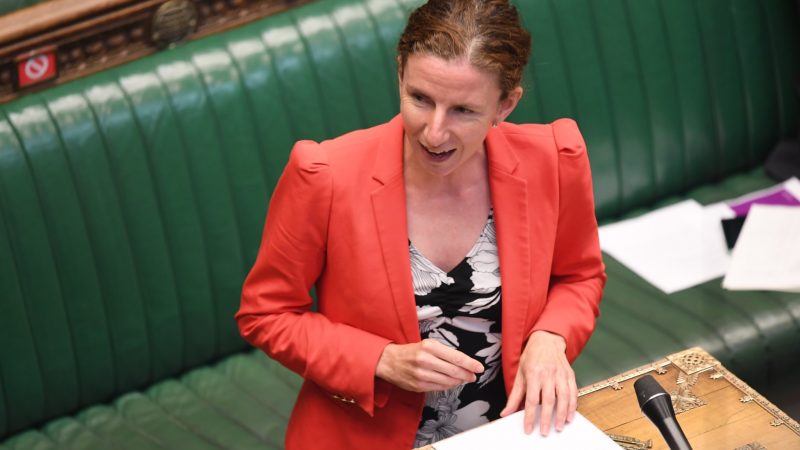
Rishi Sunak is still getting rave reviews from the public. Although there are gaping holes in the Covid support available, people are grateful for what is in place, particularly because the schemes are being introduced by Tories. Some also say he comes across as likeable, but many won’t have seen him after that press conference speech at the start of the crisis – only through the prism of hugely flattering media reports since then. And yet the Chancellor has consistently made the wrong calls throughout the crisis, from starting a one-size-fits-all withdrawal of support in the summer despite warnings of a second wave to later pushing back on scientific advice recommending restrictions. His insistence on following ideological impulses rather than the facts amounts to Covid denial, though few outside Westminster know it.
Anneliese Dodds will deliver the Mais lecture this evening as the first woman ever to do so in 43 years. Sunak’s opposite number will outline Labour’s new “responsible framework for a resilient economy” that aims to deliver a “jobs-rich recovery from this crisis and a stronger, better future for the 2020s”. As she did at the party’s online conference last year, she will stress the need for spending “effectively and wisely” and emphasise “value for money”. The content will be technical in this academic setting, but Dodds is also set to criticise the Chancellor for failing to understand “the link between health and the economy”. This speech is laying the groundwork for the economic battle in the lead up to the Budget in March.
Sunak has been embarrassingly absent of late, but made a return to parliament on Monday to announce… precisely nothing. His rhetoric in the media, though, suggests he will be talking about “sustainable finances” ahead of the Budget. To the lay person, sustainability sounds quite a lot like resilience. What Dodds is communicating is a different approach, however, and one that a Labour source suggests “will upset the consensus around how the economy has worked especially in the last ten years”. She is using this language to criticise the Tories’ short-term approach to balancing budgets and highlight that going into this crisis the UK economy was far from resilient, with insecure work rife and so many just one pay cheque away from real trouble.
While Dodds rejects Tory thinking about a five-year cycles, and instead wants us to consider 20-year economic framework, she naturally also wants to be seen as a serious and responsible Chancellor-in-waiting who can be trusted with public finances. This is where the new policy commitment to deliver “value for money” comes in. Sources say this is “nothing to do with Tory political arguments”, but instead a focus on outcomes. The scandal of free school meals is one small example; the job retention bonus was a bigger one. Labour has thus pledged to invite the National Audit Office (which so helpfully drew attention to failures in government procurement during Covid in November) to assess government spending on a value-for-money basis.
Some Labour members will recoil at the framing of these arguments and argue that the party should be much more radical in its proposals. (Labour for a Green New Deal has already expressed disappointment by the lack of ambition on the climate crisis. I’m told the speech is 7,500 words long, so further scrutiny on this aspect will be expected tonight.) Other members will reply that anti-elite messaging and very bold pledges didn’t work so well for Labour in 2019. The view from the shadow Treasury team is that “we need to demonstrate that we can be trusted on the economy, and that problem is one we’ve had for a long time”, as a source put it. “But it’s got to be driven by the needs of the economy. You need to have flexibility in times of crisis.” The key message: prudent but flexible.
Sign up to LabourList’s morning email for everything Labour, every weekday morning.



More from LabourList
‘Labour is being badly misled on housing’
Reeves bets on patience over populism
‘Energy efficiency changes must work for older private renters’